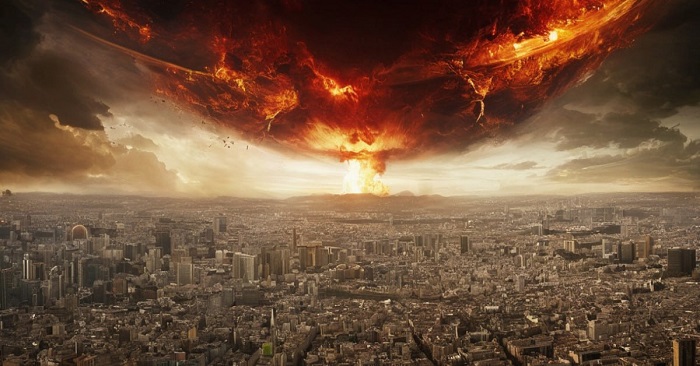The idea of “when is the world going to end timer” has fascinated people for centuries. It reflects our curiosity about the future, the unknown, and the potential end of civilization as we know it. Over time, various myths, predictions, and even scientific theories have attempted to provide an answer to this profound question. In today’s digital age, technology and countdown timers have added a modern twist to this age-old query. A world-ending timer would be a way to measure the remaining time until an event, often linked to apocalyptic scenarios.
In this article, we will explore the concept of the “when is the world going to end timer,” looking into the technological and cultural aspects of such a countdown. Can a timer be created for the end of the world? How would it work, and what would it mean for humanity? If you’ve ever wondered “What time was it“ when you started thinking about the end, a timer would help you track how much time is left, whether it’s for global catastrophes or other significant events.
What Is the World Going to End Timer?
The “when is the world going to end timer” refers to a hypothetical or conceptual timer designed to countdown to the predicted end of the world. This timer can be based on various apocalyptic theories or scientific predictions, such as climate change, asteroid impacts, or the heat death of the universe. While it is not a real, functioning timer, the idea serves as a metaphor for the unknown future of humanity and our planet. It often sparks discussion about how we can address global threats and shape the future.
The Truth Behind the ‘When Is the World Going to End Timer’
The “when is the world going to end timer” is not merely a countdown, but a powerful reflection of humanity’s concerns about the future. Across history, different cultures and civilizations have proposed theories about the world’s end, from religious prophecies to scientific predictions. A world-ending timer symbolizes not only the passage of time but also the urgency to act, whether to prevent or prepare for potential global catastrophes.
In today’s world, technology has introduced a new layer to this concept. Online calculators, scientific models, and even works of speculative fiction now shape our understanding of when and how the world might meet its end. These timers often serve as metaphors for real existential threats, such as climate change, nuclear war, or asteroid collisions. While these timers are speculative by nature, they push us to acknowledge and confront the risks we face.
The idea of a world-ending timer challenges society to reflect on our role in shaping the future. It forces us to think critically about the impact of our actions and how we can influence the direction of global events. In a way, it becomes a call to arms, urging humanity to take proactive steps in ensuring a sustainable and peaceful future.
How Does the World Going to End Timer Work?
The concept of a world-ending timer sparks curiosity about how much time humanity has left before potential global catastrophes. To understand how this timer might function, we must explore the theoretical models, countdown mechanisms, and cultural influences that would shape it.
Theoretical Models Behind the Timer
To understand how a world-ending timer could function, it’s essential to explore the theoretical models that would underpin it. Predictions might be based on current scientific data, such as the rate of climate change, the probability of an asteroid impact, or the potential for a global pandemic. Mathematical models could estimate the time left before a significant global event occurs, though these predictions rely on many assumptions and are speculative.
Countdown Mechanisms
A world-ending timer would depend on data from global databases and scientific models to track and predict key events. This timer requires continuous updates from experts in various fields, such as climate scientists, astronomers, and geopolitical analysts, who would refine the predictions as new data is gathered. The timer would provide a real-time measure of how much time is left before an event, such as an asteroid collision or catastrophic climate change, that could alter the planet.
Cultural Influence
Beyond scientific data, cultural influences play a significant role in shaping the idea of a world-ending timer. Films, books, and media often depict apocalyptic scenarios with countdowns leading to a catastrophic end. These representations amplify the urgency of these events and shape how the public perceives the timing and significance of such threats. The concept of a minutes timer ties into this, giving a sense of immediate urgency and highlighting the significance of global risks.
Why Is the Idea of a World-Ending Timer So Fascinating?
The “when is the world going to end timer” taps into humanity’s deepest fears and desires, symbolizing our awareness of time’s finite nature and the potential for global catastrophes. This fascination stems from several key factors:
- Fear of the Unknown: Humans are naturally curious about the unknown, especially when it involves existential threats. The idea of a world-ending timer stirs up fear and intrigue about the future, as it forces us to confront the possibility of an unpredictable and irreversible end.
- Control and Power: A world-ending timer gives people a false sense of control over an uncontrollable future. The countdown offers a psychological illusion of preparedness, making us feel more in charge of impending events, even if they are beyond our control.
- Entertainment Value: The media and entertainment industry has long exploited apocalyptic scenarios, contributing to the allure of the world-ending timer in popular culture. Movies, books, and TV shows have made this concept a staple in storytelling, increasing its appeal and embedding it in our collective consciousness.
The concept of a world-ending timer fascinates because it combines fear, control, and entertainment, making it an enduring and powerful symbol in modern culture.
What Would Happen If the World-Ending Timer Reached Zero?
If the “when is the world going to end timer” ever reached zero, it would signal a pivotal moment in human history. Would it mark the end of civilization as we know it, or would it signify a significant turning point for humanity? The idea of the timer ticking down raises profound questions about how society would respond to such a critical event.
Would the knowledge of an impending end lead to unity, where people come together to confront the challenges and uncertainties ahead? Or would it trigger chaos and division, with individuals and nations scrambling to secure their survival at any cost? The societal response to the timer’s countdown could be just as impactful as the event itself, shaping how we approach the final moments before the end.
The concept of the world-ending timer forces us to consider how humanity might behave under extreme pressure and whether our actions could help prevent or prolong the inevitable. The way we respond could determine the legacy we leave behind.
What Does the “When is the World Going to End Timer” Really Mean?
The “when is the world going to end timer” is a thought-provoking concept that blends science, philosophy, and popular culture. While such a timer is not likely to be entirely accurate or predictive, it serves as a reminder of the finite nature of time and the uncertainties surrounding the future. This idea challenges us to consider our role in shaping that future and the steps we must take to prevent or mitigate potential global threats.
Whether inspired by scientific theories, religious prophecies, or fictional portrayals in media, the concept of the world-ending timer forces us to confront the reality that time is limited and that the decisions we make today can have lasting consequences. It encourages us to reflect on our current path, urging us to take responsibility for the future and work toward creating a sustainable world. Ultimately, the timer represents more than just a countdown—it’s a call to value the present and act with purpose before time runs out.
Judgment
The “when is the world going to end timer” is a compelling concept that blends science, philosophy, and popular culture. While it may never be truly accurate or predictive, the idea encourages us to reflect on the future and our role in shaping it. It forces us to confront the reality of time’s passage and consider how our actions today impact the world we leave behind.
Inspired by scientific theories, religious beliefs, and media portrayals, the world-ending timer serves as a reminder to value the present. It calls us to act responsibly and work towards a sustainable future, emphasizing that our choices now determine the legacy we create for the generations to come.
FAQ’s
Can we truly predict the end of the world?
While science can identify potential risks like climate change or asteroid impacts, the exact timing of the world’s end is uncertain due to countless unpredictable variables and events.
What are some standard predictions for the end of the world?
Standard predictions for the end of the world include climate change, nuclear war, asteroid collisions, and pandemics. These are based on scientific data and theories highlighting significant global threats.
Why is the world-ending timer concept so prevalent in media?
The world-ending timer concept plays on humanity’s fear of the unknown and desire for control over an unpredictable future, creating suspense and urgency in movies, books, and TV shows.
How accurate are the scientific predictions for global catastrophe?
Scientific predictions for global catastrophes are based on models that provide estimates, but unforeseen variables introduce uncertainty, making these predictions speculative rather than definitive.
How can I prepare for global risks if we can’t predict the end?
While we can’t predict the exact timing of global risks, preparing through education, awareness, and sustainable practices can help mitigate potential threats and protect future generations.













Leave a Reply